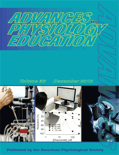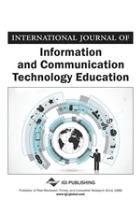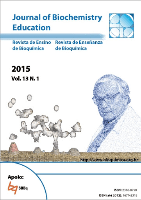
CAPjournal
Scope & Guideline
Bridging Science and Community in Astronomy
Introduction
Aims and Scopes
- Public Engagement and Education in Astronomy:
The journal emphasizes methodologies and strategies for effectively communicating astronomical concepts to the public, particularly through planetarium shows and educational programs. - Innovative Planetarium Practices:
CAPjournal explores new practices, technologies, and educational frameworks within planetariums, showcasing how these venues can adapt to modern educational needs and storytelling techniques. - Inclusivity and Accessibility in Astronomy:
The journal addresses the importance of making astronomy accessible to all audiences, including individuals with disabilities, through tailored programs and resources. - Digital and Virtual Astronomy Outreach:
With advancements in technology, CAPjournal investigates the use of digital tools and virtual platforms for astronomy outreach, especially in light of recent global challenges such as the COVID-19 pandemic. - Research and Development in Astronomy Communication:
The journal encourages empirical studies and case analyses that contribute to the understanding of effective science communication strategies within the context of astronomy.
Trending and Emerging
- Innovative Storytelling in Planetariums:
Recent publications highlight the importance of storytelling as a tool for enhancing the educational impact of planetarium shows, suggesting a trend towards more narrative-driven content. - Accessibility and Inclusivity in Astronomy:
There is a growing emphasis on creating inclusive programs that cater to diverse audiences, including marginalized groups and individuals with disabilities, showcasing a commitment to equity in science communication. - Digital Transformation in Astronomy Outreach:
The journal is increasingly focusing on the integration of digital technologies and virtual experiences, which have become essential for outreach, especially following the adaptations required during the COVID-19 pandemic. - Community Engagement through Astronomy:
Recent studies emphasize the role of astronomy in community building and public engagement, indicating a trend towards leveraging astronomy for social initiatives and community cohesion. - Environmental and Climate Awareness through Astronomy:
There is an emerging focus on utilizing astronomy as a platform for raising awareness about environmental issues, reflecting a broader societal concern and the role of scientists in advocacy.
Declining or Waning
- Traditional Planetarium Formats:
There seems to be a waning interest in conventional planetarium shows that do not incorporate new technologies or interactive elements, as the focus shifts towards more innovative and engaging formats. - General Astronomy Education without Contextualization:
Papers that discuss generic astronomy education strategies without integrating storytelling or community relevance are less frequently published, indicating a move towards more contextualized and engaging approaches. - Outreach Strategies Focused Solely on In-Person Events:
With the rise of digital outreach methods, traditional in-person outreach strategies are becoming less prominent, as the community recognizes the value of hybrid and virtual approaches.
Similar Journals

ADVANCES IN PHYSIOLOGY EDUCATION
Innovating Teaching Practices for Tomorrow's ScientistsADVANCES IN PHYSIOLOGY EDUCATION, published by the American Physiological Society, is a leading journal dedicated to the field of physiology education, with a commitment to advancing teaching practices and pedagogical strategies in this vital discipline. Established in 1998, the journal has consistently provided a platform for original research and discussion, fostering the improvement of educational methodologies. With an impressive impact factor and ranked in Q2 for Education and Q3 for Physiology, it reflects a robust academic influence within the research community. The journal ranks #458 out of 1543 in Social Sciences - Education and #130 out of 193 in Biochemistry, Genetics, and Molecular Biology - Physiology according to Scopus, highlighting its critical role in shaping physiology education. While it operates on a subscription model, its focus remains on promoting innovative education practices that benefit both educators and students alike. This journal is essential reading for anyone looking to enhance their understanding of physiology teaching and learning.

ALSIC-Apprentissage des Langues et Systems d Information et de Communication
Innovating Language Acquisition in the Digital Age.ALSIC-Apprentissage des Langues et Systems d Information et de Communication, published by ADALSIC, is a premier Open Access journal that has been at the forefront of language learning and information and communication systems since its inception in 1998. With its ISSN 1286-4986, this journal provides a crucial platform for researchers, educators, and practitioners to share innovative findings and pedagogical practices in the interdisciplinary fields of linguistics, education, and technology. The journal invites contributions that explore the dynamics of language acquisition, the effectiveness of communication systems, and the integration of technology in learning processes. By maintaining an Open Access policy, ALSIC ensures that its valuable research is accessible to a global audience, promoting collaboration and knowledge sharing among scholars and professionals dedicated to enhancing language education and communication methodologies. As an inclusive journal based in Strasbourg, France, it plays a vital role in shaping current discourse and advancing research in its field.

Advances in Astronomy and Space Physics
Bridging Disciplines for a Deeper Understanding of Space.Advances in Astronomy and Space Physics is an esteemed journal dedicated to the exploration and dissemination of research in the expansive fields of astronomy and space science. Published by Taras Shevchenko National University of Kyiv, this journal provides a platform for researchers, professionals, and students to share groundbreaking studies and innovations. With an ISSN of 2227-1481, it covers a wide range of subjects including astrophysics, planetary sciences, and space exploration technologies, thereby fostering interdisciplinary collaboration. Although not an Open Access journal, it maintains a commitment to high-quality, peer-reviewed content that contributes significantly to the advancement of scientific knowledge. The journal's mission is to promote sustainable practices in space research while also exploring the implications of discoveries on Earth and beyond. By maintaining rigorous publication standards, Advances in Astronomy and Space Physics aims to serve as a critical resource for those involved in the ever-evolving study of our universe.

International Journal of Information and Communication Technology Education
Exploring the synergy between technology and pedagogy.International Journal of Information and Communication Technology Education (ISSN: 1550-1876, E-ISSN: 1550-1337), published by IGI Global, stands at the forefront of educational research, focusing on innovative uses of information and communication technologies in the educational landscape. With an impressive impact factor and consistently high rankings—the journal is positioned in the Q3 category for both Computer Science Applications and Education in the 2023 evaluations—this journal serves as a vital platform for scholarly contributions that aim to advance teaching methodologies and enhance learning experiences. Spanning from 2005 to 2024, it explores diverse topics in e-learning and technology-enhanced education, making it an essential resource for researchers, professionals, and students passionate about the intersection of technology and pedagogy. Though specifically not an open-access journal, the invaluable insights it offers foster knowledge dissemination and innovation in the field. Located in the United States, at 701 E Chocolate Ave, Hershey, PA, the journal remains committed to fostering a collaborative and transformative approach to learning in today's digitally-driven society.

Revista de Ensino de Bioquimica
Elevating Biochemistry Education for a Brighter TomorrowRevista de Ensino de Bioquimica, published by the SOC BRASILEIRA BIOQUIMICA & BIOLOGIA MOLECULAR, stands as an essential platform for advancing the field of biochemistry education. With an ISSN of 2318-8790 and an established open access model since 2001, the journal entices a diverse audience including researchers, educators, and students who are committed to the enhancement of teaching methods and learning strategies in biochemistry. The journal is dedicated to promoting innovative pedagogical practices and fostering scholarly dialogue in order to improve educational outcomes and engagement in the biosciences. Notably based in Sao Paulo, Brazil, the journal is pivotal for disseminating vital research and insights that can assist academic institutions and practitioners globally. Readers can access a wealth of knowledge that aims to bridge the gap between biochemical research and education, ensuring the continuous evolution of the discipline.

Communication & Society-Spain
Navigating the Complexities of Society Through CommunicationCommunication & Society-Spain, published by Universidad de Navarra, is an esteemed open access journal dedicated to advancing scholarship in the dynamic fields of communication and cultural studies. Since its inception in 1988, the journal has maintained a commitment to disseminating high-quality research that engages with contemporary issues and contributes to the evolving discourse around communication theories and practices. With a commendable Q1 ranking in both Communication and Cultural Studies categories, it stands as a prominent source for researchers and professionals alike, reflecting its robust presence in the academic community—evidenced by its Scopus rankings placing it in the top percentiles within both fields. The journal's scope encompasses diverse perspectives and methodologies, thereby fostering interdisciplinary dialogue essential for understanding the complexities of communication in society. With a publication history that spans from 2010 to 2024 and a ranking of #87 out of 1304 in Cultural Studies, our commitment to open access ensures that impactful research is readily available to all, promoting further scholarly engagement and innovation.

Espacios en Blanco-Serie Indagaciones
Exploring New Horizons in Literature and Culture.Espacios en Blanco-Serie Indagaciones is a peer-reviewed academic journal published by the Universidad Nacional del Centro de la Provincia de Buenos Aires. Since its inception in 2011, this Open Access journal has provided a platform for the dissemination of innovative research in the humanities and social sciences, fostering interdisciplinary dialogue and contributing to the academic landscape of Argentina and beyond. With its commitment to accessibility and knowledge sharing, Espacios en Blanco invites researchers, professionals, and students to submit their findings and engage with cutting-edge topics in literature, culture, and societal issues. The journal's open access model ensures that valuable insights are readily available to a global audience, enhancing collaboration and scholarly communication across borders. As it continues to shape the discourse within its field, Espacios en Blanco stands as a vital resource for those seeking to explore and expand the horizons of human thought.

Journal of Astronomy and Earth Sciences Education
Exploring the Universe Through Effective TeachingThe Journal of Astronomy and Earth Sciences Education is a premier scholarly publication dedicated to advancing the study and teaching of astronomy and earth sciences. Published by CLUTE INT, this journal serves as an essential resource for educators, researchers, and practitioners in the fields of astronomy, geology, and environmental sciences. With a commitment to disseminating innovative research and pedagogical practices, it embraces a wide range of topics from classroom strategies to the integration of technology in earth science learning. Although the journal operates on a subscription basis, it is recognized for its rigorous peer-review process and its aim to foster interdisciplinary collaboration and educational advancements. With an ISSN of 2374-6246 and an E-ISSN of 2374-6254, it encourages submissions that not only further academic inquiry but also enhance community engagement in these vital scientific domains, making it an invaluable asset for anyone involved in earth sciences and astronomy education.

Public History Review
Innovating Public Engagement with Historical NarrativesPublic History Review, published by UNIV TECHNOLOGY, SYDNEY-UTS EPRESS, stands as a vital platform for exploring the multifaceted field of public history. Since becoming an Open Access journal in 2006, it has been committed to disseminating scholarly work that bridges historical research and public engagement, making it accessible to a global audience. This journal provides critical insights into how history is represented and understood in public spaces, serving as an invaluable resource for researchers, professionals, and students alike. The journal’s open access model promotes the dissemination of innovative ideas and debates within the field, fostering interdisciplinary collaboration and encouraging new scholarly perspectives. With its focus on enhancing the public's understanding of history, Public History Review plays a crucial role in shaping contemporary discussions around heritage, memory, and community engagement in history.

Journal of Education and Health Promotion
Empowering education through innovative health promotion.The Journal of Education and Health Promotion, published by Wolters Kluwer Medknow Publications, serves as a pivotal platform dedicated to advancing interdisciplinary research at the intersection of education and health. Since its establishment, the journal has maintained an open access policy to enhance accessibility and dissemination of knowledge within the global research community, fostering innovation and collaboration among educators, healthcare professionals, and researchers alike. With its ISSN 2277-9531 and E-ISSN 2319-6440, the journal enjoys recognition for its indexed publication in Scopus, holding a Q2 category ranking in Education and a Q3 ranking in Medicine (miscellaneous) as of 2023, further establishing its impact within the academic community. The journal seeks to publish original research, reviews, and case studies that contribute to the understanding of health promotion within educational frameworks, making significant strides toward improving community health outcomes. Emphasizing rigorous peer review and a commitment to high-quality scientific contributions, the Journal of Education and Health Promotion continues to play an essential role in promoting health literacy and educational reforms. Explore the journal for the latest in education and health promotion research.